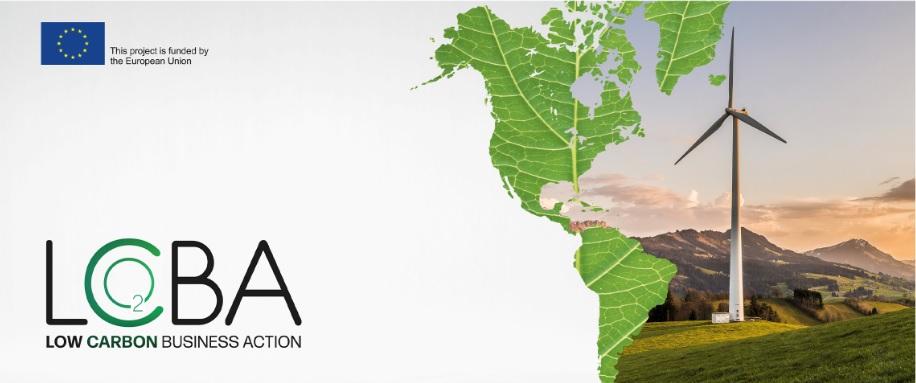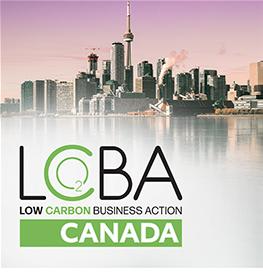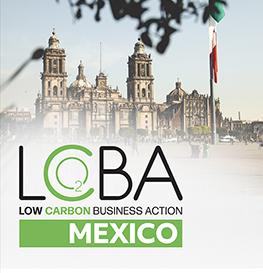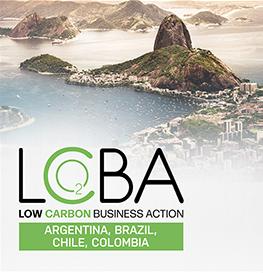Argentina, Brazil, Canada, Chile, Colombia and Mexico are markets with strong growth opportunities. At the same time, these markets have a clear demand for green technologies and solutions to transition toward a circular economy. Nonetheless, European companies still face entry and expansion challenges that include structural, linguistic and regulatory barriers, quality standards, currency exchange risks and differing levels of technology transfer and trade requirements. Such challenges can be overcome through a guided approach to the market, access to relevant support mechanisms, an accurate identification of business opportunities, and the development of solid relationships with the right business partners. This is where the Low Carbon and Circular Economy Business Action comes into play.

The Low Carbon and Circular Economy Business Action is an EU funded initiative that aims to facilitate the commercialisation of green low-carbon technologies of European small and medium-sized enterprises and companies in Argentina, Brazil, Canada, Chile, Colombia and Mexico, in sectors of high sustainable impact.
Who can benefit?
This initiative will benefit companies from the 27 EU Member states and six partner countries (Argentina, Brazil, Canada, Chile, Colombia and Mexico) that propose solutions in low carbon technologies and circular economy, in sectors such as:
- Renewable energy
- Energy management and efficiency
- Waste to energy
- Green infrastructure
- Environmental technologies
- Mobility and green transportation
- Information and communication technologies applied to sustainable solutions
- Agriculture and forestry
- Biomass, biogas and biomethane
- Biofuels
- Hydrogen technologies
The Action will be open to interested companies from January 2021 until September 2023.
International, EU and six partner countries participants such as clusters, environmental, industry and trade organisations and funded initiatives and projects also have a key role to play in this Action – not only as sources of referrals and information, but also by offering support in the countries, creating value and providing feedback. Support from these participants is essential.
How it will be done?
A purely business-driven approach for each target market has been designed to provide participating companies with the right support to identify opportunities through meaningful commercial interactions. Among them are targeted buyer/SME matchmaking and events, one-to-one meetings and/or business innovation challenges, as well as support for investment and co-financing access. Together, this will boost economic cooperation while showcasing world-class green innovation by European enterprises. But the support will not stop there.
To drive impact, the project will provide technical assistance to help the most promising trans-Atlantic business concepts become successful business engagements. This includes but is not limited to trade orientation, identification of co-financing opportunities, and product to market adaptation and legal advice.
By strengthening the commercial presence of European companies with sustainable technologies, products and service solutions in the target markets of Argentina, Brazil, Canada, Chile, Colombia and Mexico, this business-driven initiative aims to reduce carbon emissions, promote the principles of the EU Green Deal and support the implementation of the Paris Agreement on Climate Change.
How to participate?
Discover the business opportunities provided by each target market and learn more on how to engage and apply to your countries of interest through these links:
 Do you have a low carbon solution for the Canadian market? Find out more about the business opportunities in Canada here. |
 Do you have a low carbon solution for the Mexican market? Find out more about the business opportunities in Mexico here. |
 Do you have a low carbon solution for those markets? Find out more about the business opportunities here. |
Get the latest updates, market insights, information on events and business opportunities by tuning in to the Action’s social media:
More information:
The Low Carbon and Circular Economy Business Action was first launched in September 2015 in Brazil and in Mexico. In Brazil, the pilot have attracted over 300 participating companies. Over 90 projects benefited from technical assistance and resulted in a myriad of successful partnerships.
Other market Insights of the Action in Brazil and supported projects can be found at http://www.lowcarbonbrazil.com.br/index.php
Having established a clear footprint in Brazil and in Mexico, and this current Programme of will now see the launch of new, improved, impact-driven actions in Argentina, Canada, Chile and Colombia.
Market snapshots
Canada
As the major motivation driving demand in the private and public sector, Canadian Climate policy (Federal/Provincial & Territorial/Municipal) becomes a key overlay in driving activity across the Canadian market. The emission reduction target established by the Government is a 30% reduction in emissions by 2030 compared to 2005 (the base year). The Pan-Canadian Framework on Clean Growth and Climate Change (PCF) was adopted in 2016 and has put forward actions that are resulting in significant technology and infrastructure investment and concomitant GHG reductions.
This comprehensive plan for climate action and clean growth has been designed to help reduce carbon pollution, protect competitiveness, spur SME and technological innovation, foster international partnerships, and grow the economy. The Canadian market therefore has a robust support structure to encourage and accelerate Canadian Cleantech SMEs. Low carbon and circular economy opportunities in Canada will rely on developments in the following key sectors: Transportation, electricity, agriculture, energy efficiency and green buildings, Agriculture.
Mexico
Mexico was the first developing country to submit a pledge under the Paris Agreement, with a Nationally Determined Contribution (NDC) of 22% reduction against the baseline scenario by 2030 and a mid-century vision to achieve a 50% reduction compared to the same baseline.
Despite the slowdown of the sustainable agenda in the current political context, Mexico made international headlines in September 2020 by being the first country to issue a sovereign green bond linked to the UN Sustainable Development Goals. The Ministry of Finance and Public Credit announced this 750 million Euro green bond would be dedicated to finance sustainable projects.
At the same time, the concept of circular economy is being promoted by a draft federal law initiated by the current administration, which holds the majority in the two Chambers of Congress. This law initiative, once adopted, will create the legal framework for the development of specific policies aimed to facilitate the implementation of a circular economy vision at the three levels of government (federal, State and municipal).
Low carbon and circular economy opportunities in Mexico will rely on developments in five key sectors: renewable energy sources, energy efficiency, mobility, waste management, water management.
Argentina
Argentina and the European Union (EU) develop their bilateral relations under the Framework Trade and Cooperation Agreement of 1990, which establishes the bases for cooperation in foreign trade, the economy, agriculture and industry.
Potential key technologies areas in Argentina include: Solar, Wind Power, Thermal efficiency solutions, Efficient Lighting, Energy efficiency in the industry and oil refineries, Agriculture and water pumping, Collection and Treatment, Smart Agriculture, Biogas and Biomethane and waste management Anaerobic digestion.
Brazil
Brazil and the EU share a long-standing relationship based on strong cultural and historical ties. This partnership covers a range of issues including climate change and sustainable energy.
Potential key technologies areas in Brazil include Power generation from organic waste, Solar, Biogas and Biomethane, Energy efficiency in electric and heavy-duty vehicles, Low emission collecting, handling and storage solutions, Treatment, Land Application of solid and liquid effluents, Agroforestry schemes including afforestation, Agricultural land frontier (cultivable + pastureland), Cropland nutrient management (including fertilizers).
Argentina and Brazil integrate the EU Mercosur Association Agreement, recently agreed upon and which aims to create a free trade area between the blocks.
Chile
The investment flow from the EU into Chile almost doubled in the first 10 years of the implementation of the Association Agreement. They work together in the fight against climate change, to preserve our Oceans and towards the fulfilment of the sustainable development Agenda.
Potential key technologies areas in Chile include: Renewable energy (Solar, Wind, Small hydro, Biomass, Co-generation, Energy storage and Intelligent networks), Energy efficiency in mining, heavy duty vehicles, Recycling technologies, Agriculture and solid waste management, Smart and precision agriculture, Agroforestry schemes including afforestation, wildfire and Solid waste collection and transportation.
Colombia
The EU-Colombia Trade Agreement covers Trade and Sustainable Development and give special importance to issues related to green diplomacy. The EU supports initiatives to mitigate, adapt to and reduce vulnerability to climate change and finances projects that seek to build sustainable development models and promote peace-building initiatives under the Paris Agreement.
Potential key technologies areas in Colombia include: Solar, Wind power, Biogas, Energy storage and Intelligent networks, optimization of thermal systems, Energy efficient process technologies, Technologies to waste reduction and treatment, heat recovery systems, Smart Agriculture including storage solutions, Agroforestry schemes including afforestation, efficient solutions for transport (low energy consumption), Management and use of waste in municipalities and large industries, Manufacture of biomass, biogas or biofuel material recovery facilities.



